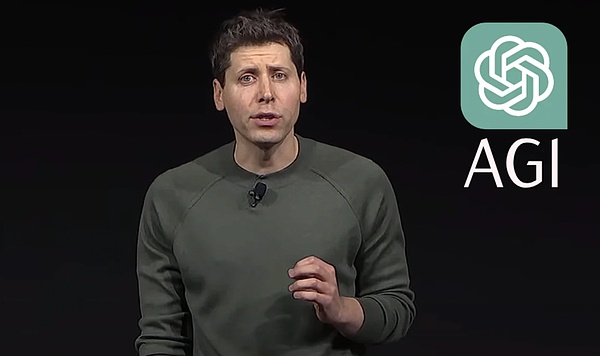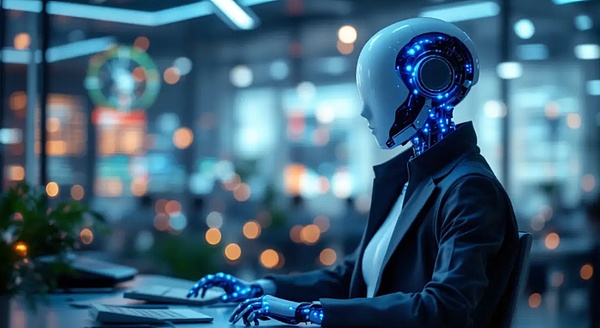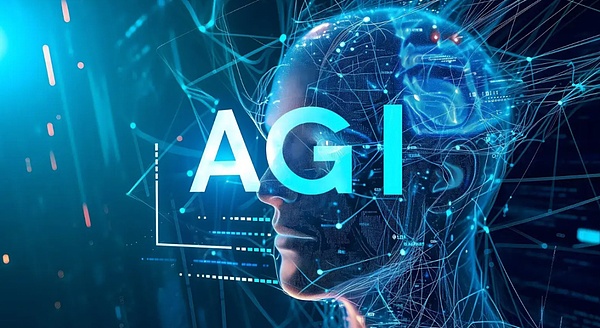Our mission is to ensure that artificial general intelligence (AGI) benefits all of humanity.
With systems approaching AGI now on the horizon, it’s important to understand the era we’re in.
AGI is a vaguely defined concept, but it generally refers to systems that can solve complex problems at a human level across multiple domains.
Humans are tool creators by nature, with a strong desire to explore and innovate, and it’s this drive that drives the world forward. Each generation builds on the shoulders of those who came before them, inventing more powerful tools—from electricity, transistors, computers, the internet, and, soon, AGI.
The pace of human innovation may be faster or slower, but overall, our society is moving at an incredible pace toward higher levels of prosperity, improving nearly every aspect of people’s lives.
In one sense, AGI is just another stepping stone on the long ladder of human technological progress. But from another perspective, its emergence marks the arrival of a special moment - we have to admit, "This time, things are really different."

The economic growth in front of us looks amazing, and we can even imagine: in the future, we can cure all diseases, spend more time with our families, and fully realize everyone's creativity.
Perhaps in another ten years, perhaps everyone on the planet will be able to surpass the most successful people today.
Our understanding of AI is evolving rapidly, and the economic impact of AI is gradually becoming apparent. In this process, we observed three important trends: 1. The intelligence level of an AI model depends roughly on the logarithm of the resources consumed for its training and operation. These resources mainly include training computing power, data, and inference computing power. In other words, the more money invested, the more predictable and sustainable the improvement of AI capabilities. At present, the relevant expansion law has been verified over multiple orders of magnitude. 2. The cost of using AI is falling by about 10 times each year, promoting the popularization of applications. We see that the cost of using AI is falling at an astonishing rate. For example, from GPT-4 in early 2023 to GPT-4o in mid-2024, the unit computing cost has fallen by about 150 times. In contrast, Moore's Law states that the performance of processors doubles approximately every 18 months, while the rate of decline in AI costs far exceeds this level, and the changes brought about are also more drastic.
3.Linear improvements in intelligence levels often bring super-exponential economic returns. This means that in the foreseeable future, capital investment in AI will continue to accelerate because the returns far exceed the investment.
If these three trends continue, the impact on society will be extremely far-reaching.
In addition, we are now beginning to launch AI agents or AI agents. As AI agents are gradually being put into practical applications, they may be integrated into human work like virtual colleagues in the future.
It is conceivable that future AI engineer agents will be able to complete most of the tasks that a software engineer at a top company can complete in a few days.

Although it will not have the most groundbreaking innovative ideas, it needs human supervision and guidance, and may perform well in some tasks and fail in others, but overall, its capabilities are sufficient for many professional jobs.
Going a step further, suppose we have not just one such intelligent agent, but 1,000 or even 1 million? Imagine that such intelligent agents are applied to various knowledge-based industries. What kind of changes will this bring?
From an economic perspective, AI may become a scientific breakthrough that permeates all fields, just like the transistor. Today, we don't pay much attention to transistors or the companies that produce them, but they have been deeply integrated into our computers, TVs, cars, toys and other devices, making everything smarter.
Of course, society will not change overnight. In 2025, people's lifestyles will still be largely similar to those in 2024. We will still fall in love, have families, fight hard online, go hiking, etc.
However, the future is approaching us in a way that cannot be ignored, and in the long run, the changes in social and economic structures will be huge.
As AGI develops, we must find new ways to create value, and perhaps the work of the future will be very different from the work of today. Willpower, subjective initiative and adaptability will become particularly important, and it will be more important to decide what to do and how to move forward in a changing world.
AGI will not weaken individual influence, but will become the greatest "lever" of human will, giving individuals unprecedented power and influence.
Of course, the impact of AI will not be evenly distributed. Some industries may see smaller changes, while the pace of scientific progress is expected to be much faster than today, and this impact of AGI may outweigh everything else.
In the future, the prices of many goods will drop significantly (currently, intelligence and energy costs are the main factors restricting the development of many industries), but the prices of luxury goods and scarce resources such as land may rise instead.
The development path of technology is relatively clear, but how to integrate AGI into society still requires well-thought-out public policies and social consensus. Therefore, we continue to launch AI products so that society and technology can evolve together.

AI will gradually penetrate into all areas of the economy and society, and people will expect everything to become intelligent.
We may need to give individuals more control over AI technology, such as more open source, and balance the relationship between safety and individual empowerment.
We always insist on acting cautiously, although there may be some unpopular important decisions and restrictions on AGI safety. But overall, as we get closer to AGI, we think it is important to lean more towards giving individuals more autonomy.
However, another possibility is that AI is used by authoritarian governments to deprive individuals of their freedom through large-scale surveillance, which is obviously not the direction we want to see.
We always emphasize that the benefits of AGI should benefit everyone widely.
Historically, technological progress often improves indicators such as health and economic prosperity, but it does not automatically lead to a more equitable distribution. This means that we need new ways of thinking to ensure the fairness of technology.
One of the key issues is that the balance between capital and labor may be broken, so we may need to intervene early.
For example, we can consider some seemingly "radical" ideas, such as providing a certain computing budget to everyone in the world so that everyone can use AI efficiently, or reducing the cost of intelligence as much as possible to make it popular.
Our vision is that by 2035, the intelligent resources mastered by anyone will be comparable to the sum of the wisdom of all mankind in 2025, and everyone will be able to freely harness infinite wisdom and realize their imagination.
At present, there are still a large number of talents who cannot fully display their talents due to lack of resources. If we can change this, the explosion of global creativity will bring immeasurable benefits.
 Anais
Anais







